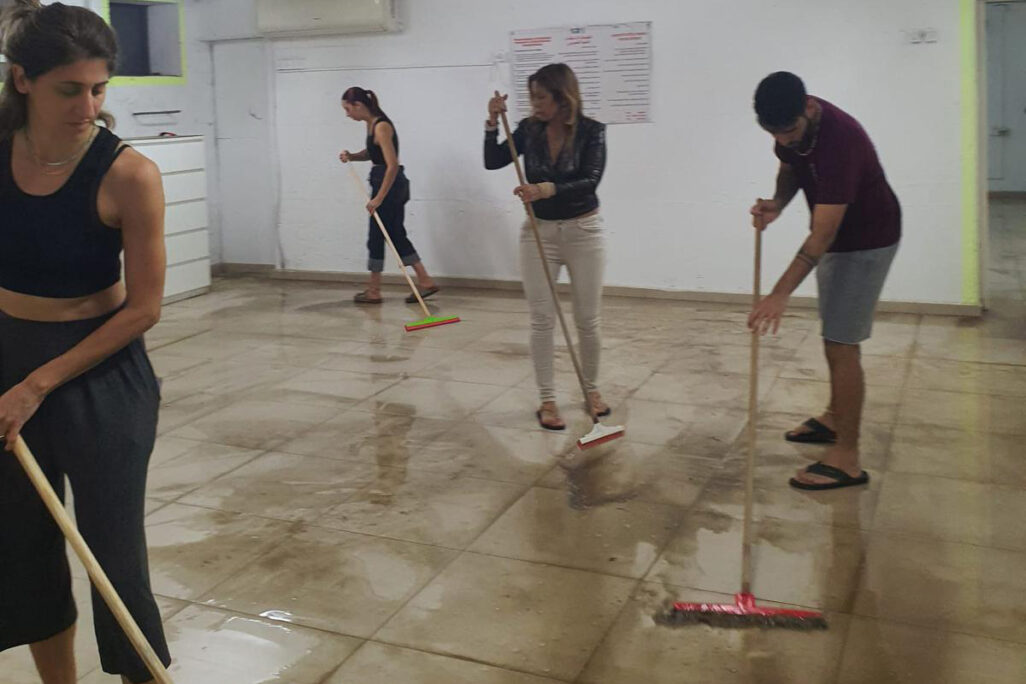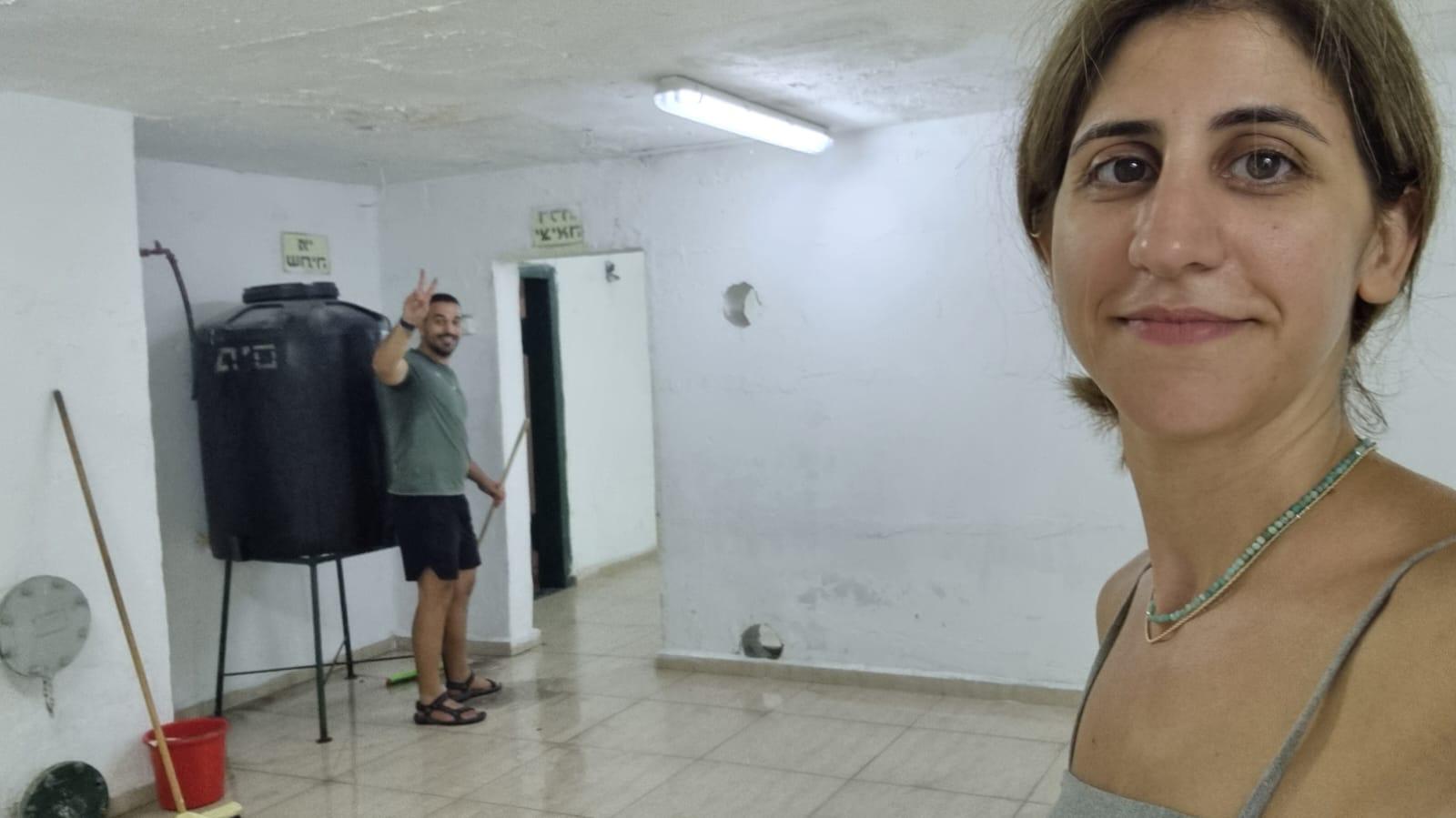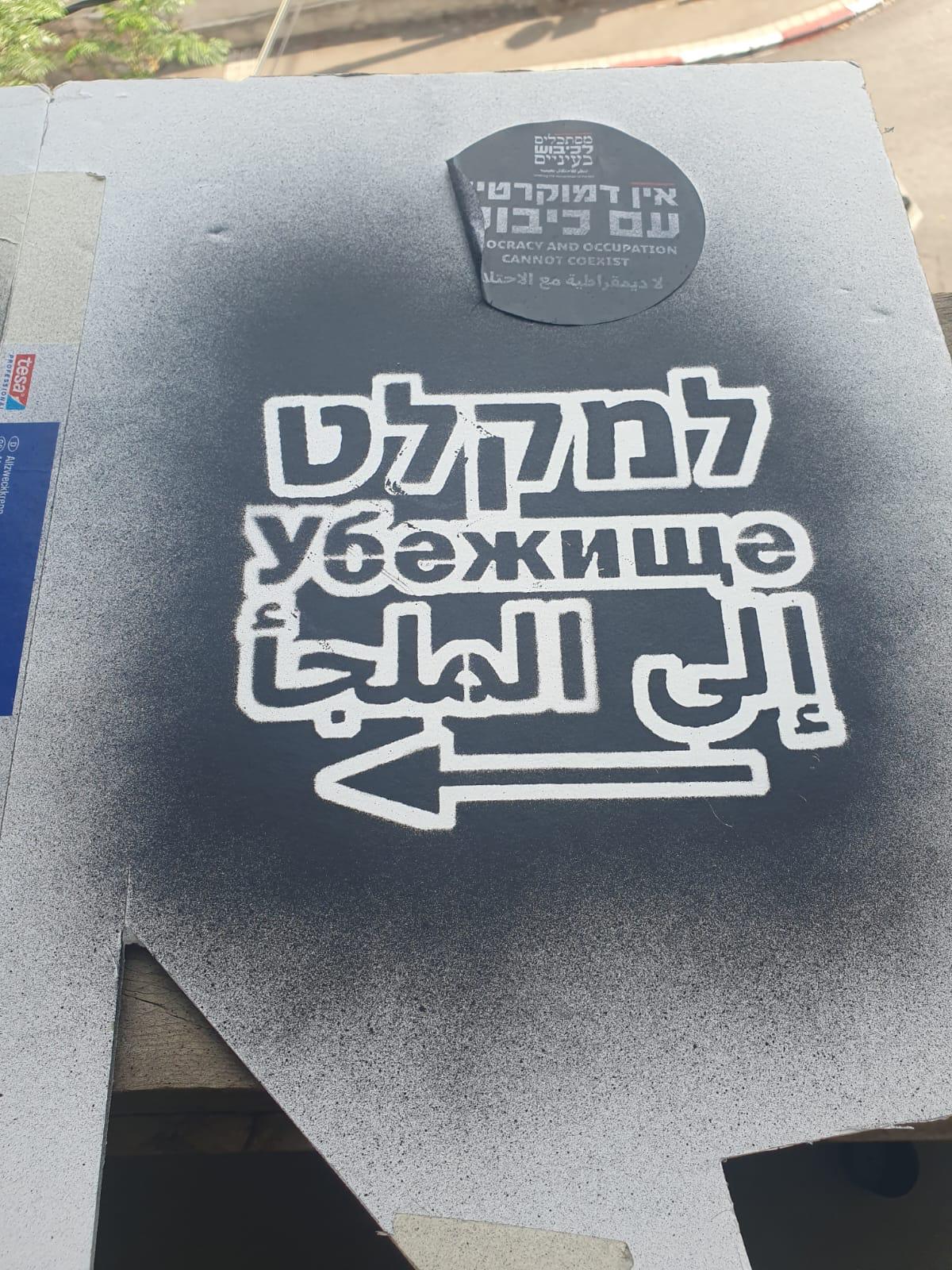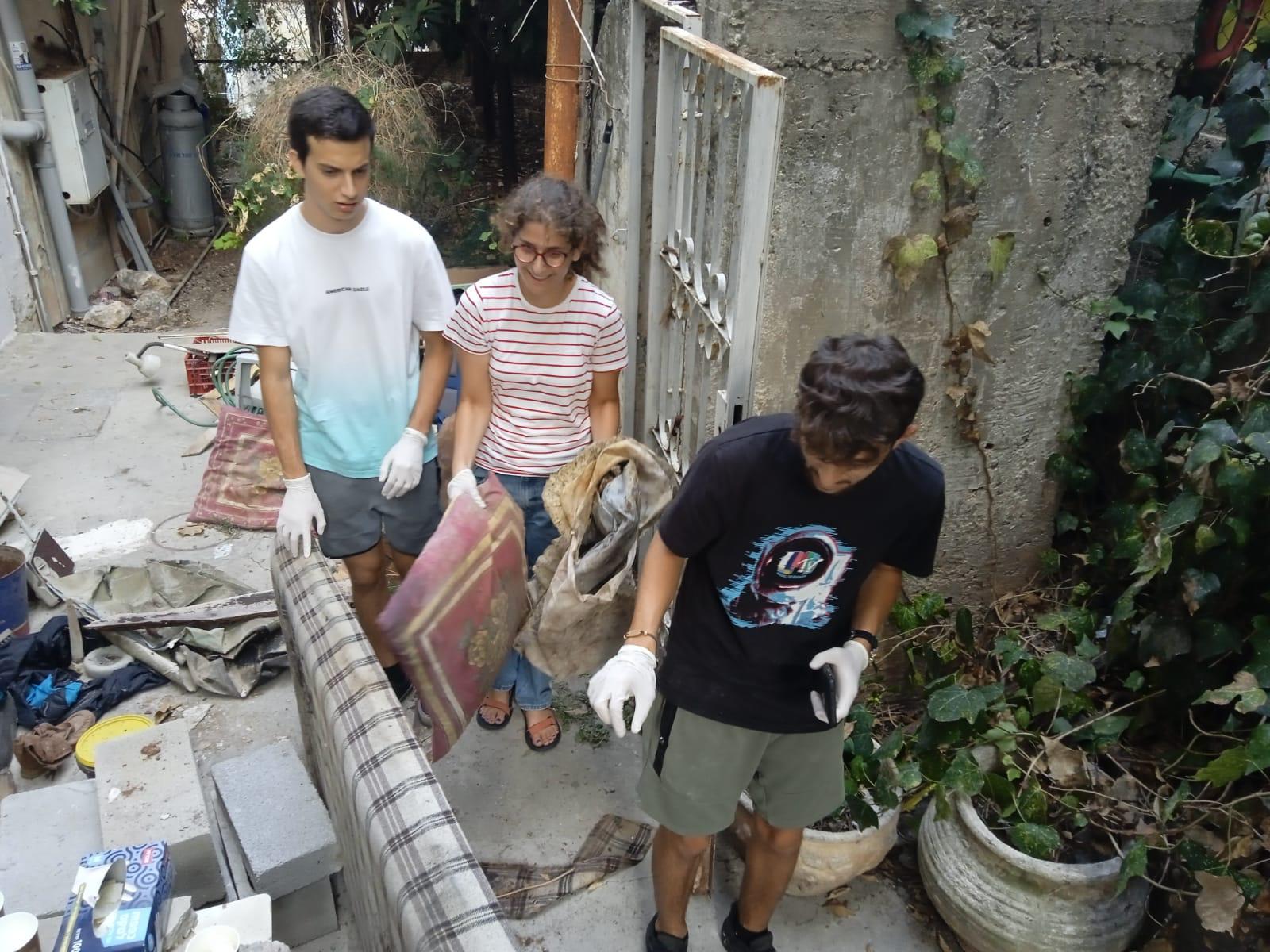
In the last two weeks, more than 700 Jews and Arabs have participated in mapping and cleaning out bomb shelters throughout Haifa in an initiative led by the 'Rov Ha'ir', or 'Majority of the City' movement. In a conversation with Davar, Sally Abed, an activist in the movement, discusses the mobilization and atmosphere of the city, where Arab citizens make up about 12% of the population.
The upkeep of the shelters in Haifa is being organized by Rov Ha'ir, a mixed Jewish and Arab urban movement. Sally explains that the action in Haifa has a different character than organizations in a similar spirit elsewhere, because Haifa is a city where the partnership between Jews and Arabs is relatively established. In Haifa, the emphasis was not to warn against a flare-up in relations between Jews and Arabs, but to strengthen solidarity.

Before the war, Rov Ha'ir was focused on encouraging participation in the upcoming municipal elections in Haifa. "We had a large organizational structure left over from our work during the elections," says Abed. "We turned it into creating an initiative for mapping, cleaning, and preparing public bomb shelters in Haifa. We recruited more than 700 people, and mapped 150 shelters. We have already cleaned 90 shelters from [the Arab neighborhoods of] Halisa and Wadi Nisnas to [the Jewish neighborhoods of] Merkaz HaCarmel, and Kiryat Haim. We went through all the neighborhoods and reported to the municipality about closed or inaccessible shelters." Within a week, the movement had prepared over 350 shelters and cleaned over 150.
"The activity got people out of the house, away from the news and from their phones," says Abed. "Right now it's not about politics, but community solidarity."
Spreading Messages of Solidarity
Despite the strong atmosphere of shared existence in the mixed city, the situation is still charged and tense. "In May 2021, the social resilience in Haifa was not enough," says Abed. "There was escalation and harassment in the street. Even now you see a push for more armed guards. It's scary." Abed compares the situation to a room filled with gas, which could be obliterated by the lighting of a match. "We’re trying to open windows, to ventilate the room.

"We tried to understand how to calm the situation and spread positive messages. We try to monitor incitement and fake news. We connected groups on social networks, in cooperation with the community division of the municipality and civil society organizations such as 'Tzedek Centers' and 'Fake Reporter.' We’ve connected hundreds of people. We are currently creating a system to increase communications between social activists and local leaders.
"This is a polarizing moment. There are a lot of reports of hostility. If we hear about something that endangers lives, we report it to the police. If the incident is less severe, we try to understand how to spread messages of solidarity to those communities.
"The Pain is Seen as Jewish Pain, But We are Also Hurting"
"Each person, in moments of pain and danger, asks who the enemy is," says Abed, "and in such moments we are considered traitors until we confirm our loyalty. The pain is seen as Jewish pain, although we also feel pain for the murdered, in a very authentic way." In her opinion, there is a lack of public legitimacy for the expression of the unique pain of Arab-Israeli society, a pain that relates in particular to the murdered Bedouins, and also to the Palestinian civilian population that is affected by the war. "I am both Palestinian and I am also Israeli. I am crushed by what happened in the south, but also by what is happening in Gaza and the West Bank."

According to Abed, shared spaces in civil society are the only places where different experiences of pain can be given space. "The prism of society is not one of political positions, but of people. It succeeds when there is truly joint action, joint leadership." Abed clarifies the distinction between places that are home to mixed populations, and places that are truly shared. "When there is real shared existence in the community, you manage to contain the experience in a different way, to look at the human loss on every side."
Abed describes the local action she is involved in as part of a broader vision. Abed continues to believe in a shared existence between Jews and Arabs in Israel. "For the Jewish majority, the 'us' now is the Jewish people. These shared spaces are trying to expand this to something that includes the Arabs. A shared Israeli society."
This article was translated from Hebrew by Etz Greenfeld.






